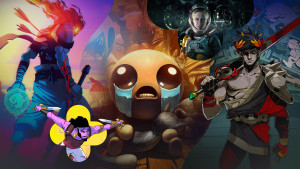Please support Game Informer. Print magazine subscriptions are less than $2 per issue
This Generation's Must-Play JRPGs
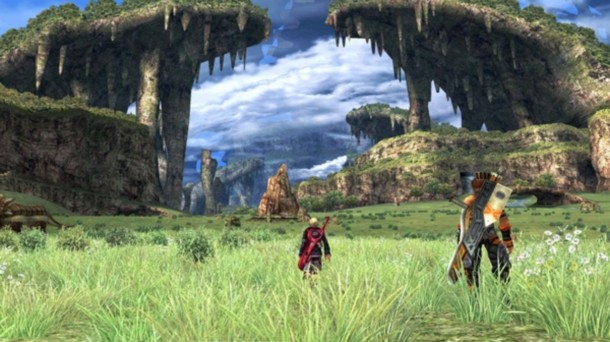
It’s no secret that this generation of video games hasn’t been particularly kind to Japanese games in general, and Japanese RPGs in particular have fallen out of favor. That doesn’t mean there’s nothing in this once-beloved genre worth playing from the past five years. With this generation approaching its end, we decided to look back on the must-play JRPGs that came out on the Xbox 360, PlayStation 3, Wii, DS, and PSP.
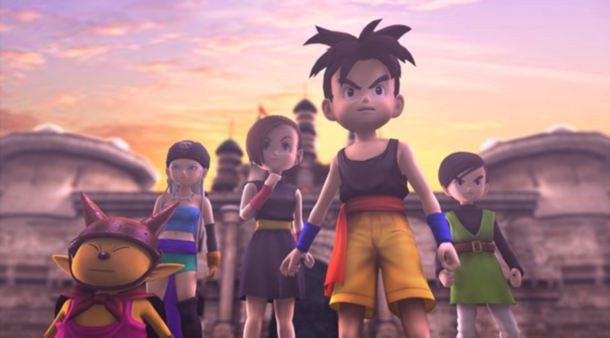
Blue Dragon (360)
Of any new developer this generation, Mistwalker has been the greatest hope for JRPG fans. Founded by Final Fantasy creator Hironobu Sakaguchi, this team hasn’t had all hits, but they’ve still helped create some of the best Japanese RPGs in years. As Mistwalker’s first release, Blue Dragon seems like the true, current-gen continuation of the Dragon Quest franchise that we never quite got. The story may have been simplistic, and Toriyama-designed characters aren’t for everyone, but the classic gameplay and huge world harken back to the genre’s roots in a way that I definitely appreciated.
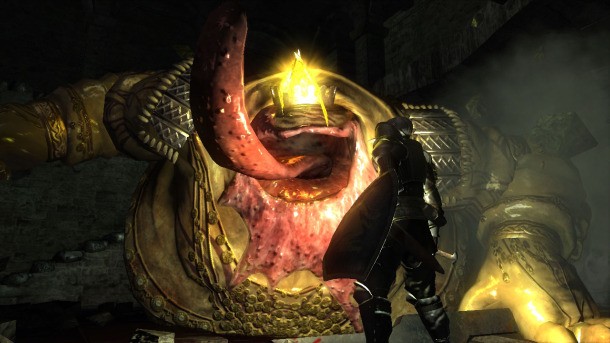
Demon’s Souls (PS3) -- GI's Review -- and Dark Souls (PS3, 360) -- GI's Review
Though I’ve always had a sort of begrudging respect for the obscure Japanese studio From Software, it’s fascinating to me that the generation where Japanese developers are largely being ignored is the generation where From Software has really come into its own. Demon’s Souls’ unforgiving brand of gameplay was so risky and against the stream of everything else coming out these days that Sony passed on publishing it in the U.S., but somehow it still became a cult hit. The Namco-published follow-up, Dark Souls, has only grown bigger. These certainly aren’t traditional JRPGs, and they aren’t for everyone, but they provide an experience that’s totally unique this generation.
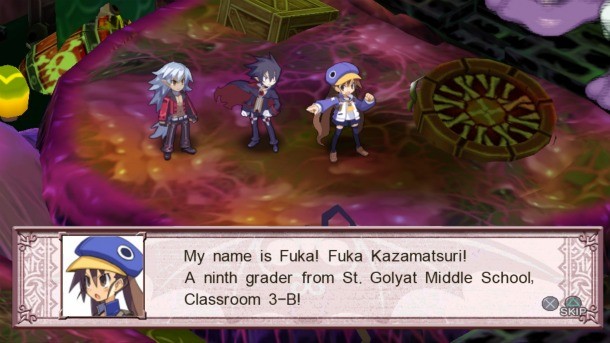
Disgaea 4 (PS3) -- GI's Review
Though it hasn’t changed a ton from its origins, Disgaea 4 was widely considered to be the best entry in the quirky tactical RPG series since the original. If you want a game that features both comedy and an almost laughable amount of depth, the Disgaea series is still delivering.
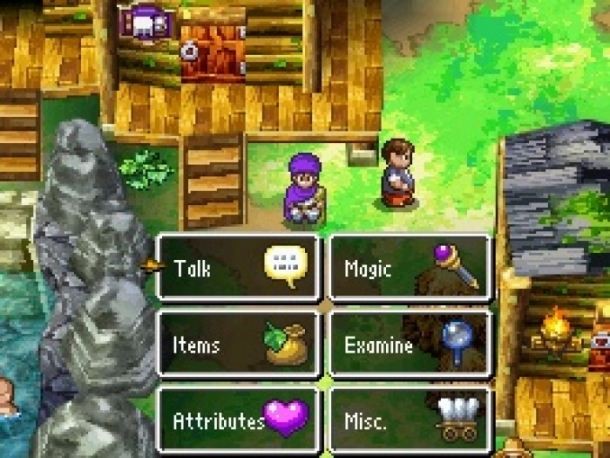
Dragon Quest V: Hand of the Heavenly Bride (DS) -- GI's Review
Though technically a remake of a Super Famicom game, Dragon Quest V made its North American debut on the DS in 2009. While playing, I found it hard to believe that this game came out in 1992. Yes, the combat is as simple and as straight-forward as it has always been in Dragon Quest games, but between the deep monster-recruiting system and the shockingly touching, generation-spanning storyline, this game feels fresh, modern, and well worth playing in this iteration.
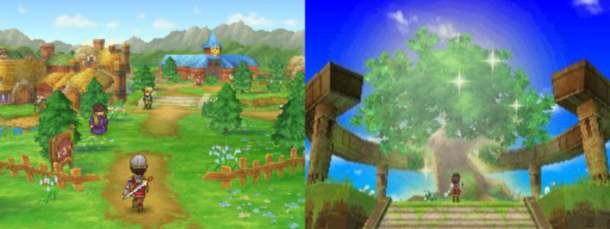
Dragon Quest IX: Sentinels of the Starry Skies (DS) -- GI's Review
While Dragon Quest IX’s plot didn’t blow me away the way DQ V’s did, it has its own welcome additions to the franchise formula. In particular, this game added a much-loved multiplayer option, paving the way for the upcoming MMO Dragon Quest X. Since the multiplayer is local only, it doesn’t add much if you don’t have friends playing the game, but you can still download bonus quests, explore rare treasure maps, and enjoy the much-improved loot collection.
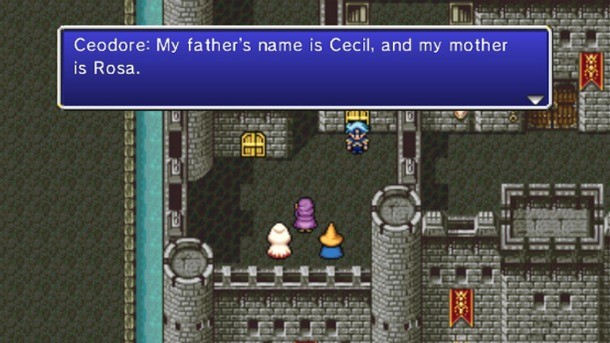
Final Fantasy IV: The Complete Collection (PSP) -- GI's Review
I may be stretching the definition of "this generation" with this entry, but Final Fantasy IV: The Complete Collection technically has some new content in the form of "Interlude" and "The After Years," two continuations of the story from this SNES classic. Those follow-ups aren’t really the star of the show, though. This collection is worth checking out simply for the fact that it contains the cleanest, best-balanced, and most beautiful version of Final Fantasy IV ever released.
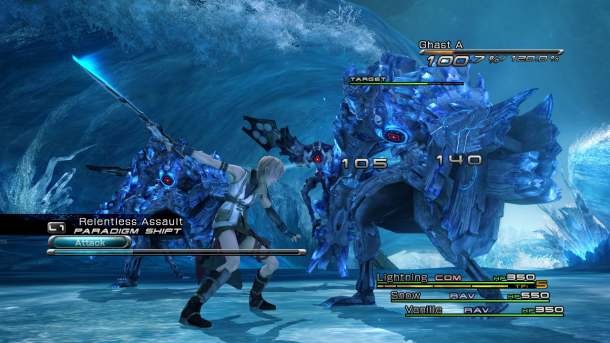
Final Fantasy XIII (360, PS3) -- GI's Review
I have some major and well-documented issues with Final Fantasy XIII. So why would I include it on this list anyway? Simple: that oh-so-satisfying battle system. You’ll need an overabundance of patience to get through the many cutscenes full of unlikable characters and the hours upon hours of tutorial and build-up before your full potential is unlocked, but the grandiose exploration of Gran Pulse matched with the wonderful fast-paced yet strategic combat makes it arguably worth putting up with the first 30 hours to enjoy the final 20. Or if you’d rather skip right to the good stuff…
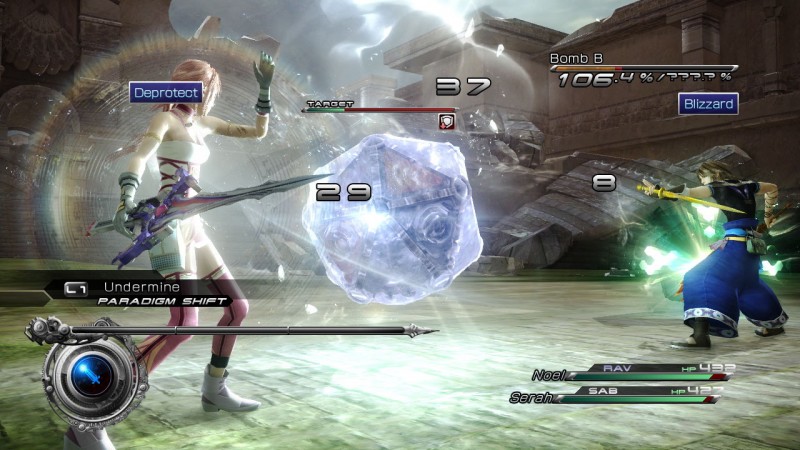
Final Fantasy XIII-2 (360, PS3) -- GI's Review
My preference of Final Fantasy XIII-2 over the original is not necessarily the most common point of view. Nonetheless, I stand by it. Though it still has plenty of problems, FF XIII-2 succeeds in pulling out all of the good elements of XIII, getting them up and running much faster, and adding a few more helpful tweaks. The time travel hook is handled terribly from a narrative standpoint, but it allows for some great game design, letting players easily jump back and forth between different times and locations and never lock themselves out of content. All that plus an improved version of XIII’s combat and an addictive monster collection system added up for a game that I happily sunk 50 hours into and unlocked every achievement in.
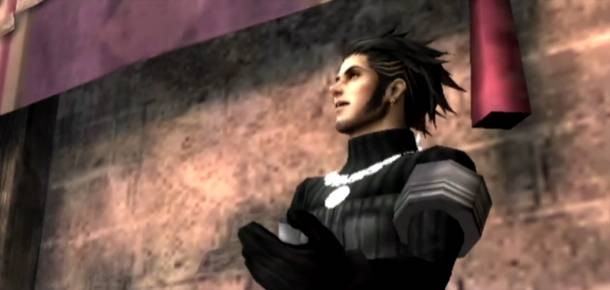
The Last Story (Wii)
The Last Story won’t be out until sometime this summer in North America, but there’s a reason that a faction of gamers were upset with the possibility of it not coming out in this region at all. The Last Story is the latest release from the previously mentioned Sakaguchi and his team at Mistwalker, but unlike their other games, this one doesn’t seem to be leaning so heavily on traditions from the past. Where Blue Dragon recalled Dragon Quest and Lost Odyssey would have felt at home under the Final Fantasy name, The Last Story is something strange, new, and exciting. For more information, be sure to check out my preview in the upcoming May issue of Game Informer.
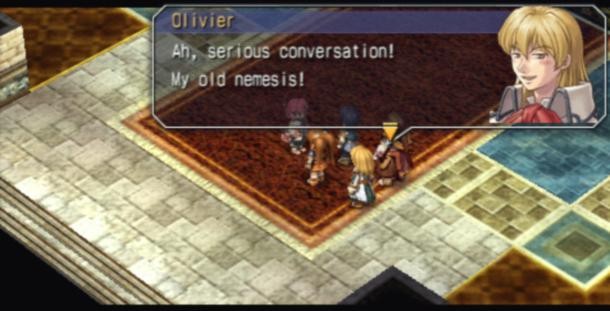
The Legend of Heroes: Trails in the Sky (PSP) -- GI's Review
Trails in the Sky may be the most underappreciated game on this list. Falcom’s Legend of Heroes series got a bad reputation due to some rough PSP translation jobs by Namco Bandai, but the much more reliable Xseed took over with Trails in the Sky. With the translation handled properly, the game’s true nature shines through: an homage to classic 16-bit RPGs full of funny, charming characters and an absurd amount of content. If you own a PSP, give it a shot.
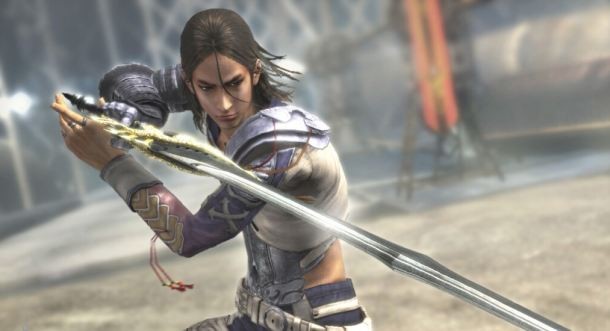
Lost Odyssey (360)
It’s easy to pass off Lost Odyssey as a Final Fantasy wannabe – in fact, I kind of just did that a few entries up – but it’s a Final Fantasy wannabe created by the father of Final Fantasy. Sakaguchi still knows how to craft a dark, compelling RPG plot, and with Lost Odyssey he proves that he can do it better than those he left at Square Enix. The tragic tale of a cursed immortal named Kaim is improved by challenging battles and emotionally charged, text-only short stories.

Mario & Luigi: Bowser’s Inside Story (DS) -- GI's Review
Nintendo’s Mario RPG and Paper Mario spin-offs have maintained a level of quality no one would expect from turning a platformer with virtually no story into a series of quirky RPGs, but Bowser’s Inside Story is the best yet. The Mario & Luigi gameplay remains centered on a fun, timing-focused combat, but the real star of the show is Bowser, whose personality flare-ups never fail to amuse.
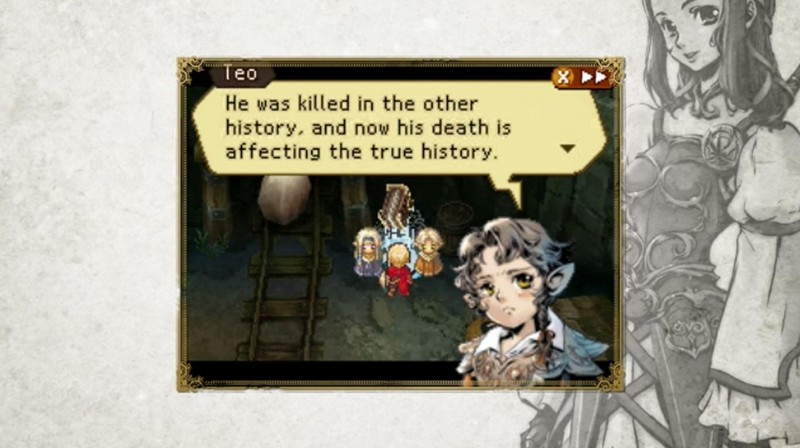
Radiant Historia (DS) -- GI's Review
Dear everyone who’s been begging for a new Chrono Trigger game forever: Go buy Radiant Historia. This epic from Atlus has all the era-hopping and time-tangling that makes the Chrono games memorable, but the plot is even darker and collecting false endings is turned into a game of its own. Final Fantasy XIII-2’s great Historia Crux system is lifted from Radiant Historia, but it’s definitely done bigger and better here.
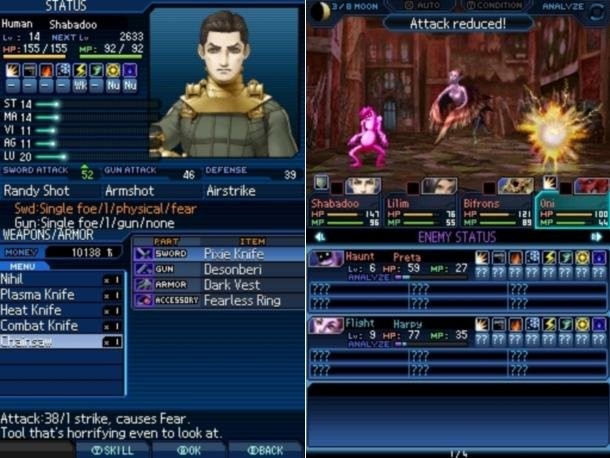
Shin Megami Tensei: Strange Journey (DS) -- GI's Review
Of all the games on this list, Strange Journey is the least likely to appeal to everyone. You must not only be open to facing the legendary difficulty of Shin Megami Tensei games, but you have to be down with the oldest of old-school: first-person dungeon crawlers. It’s worth overcoming these challenges to enjoy SMT’s trademark demonic allies and creepy, near-future plot.
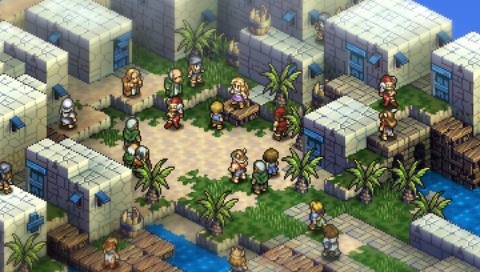
Tactics Ogre: Let Us Cling Together (PSP) -- GI's Review
Though Tactics Ogre is traditionally more difficult than, say, Disgaea, it’s also got even more depth for strategy RPG fans to sink their teeth into. This updated handheld port speeds up the level grind and features a fresh translation that makes it well worth playing even if you’ve already sunk countless hours into the PS1 version.
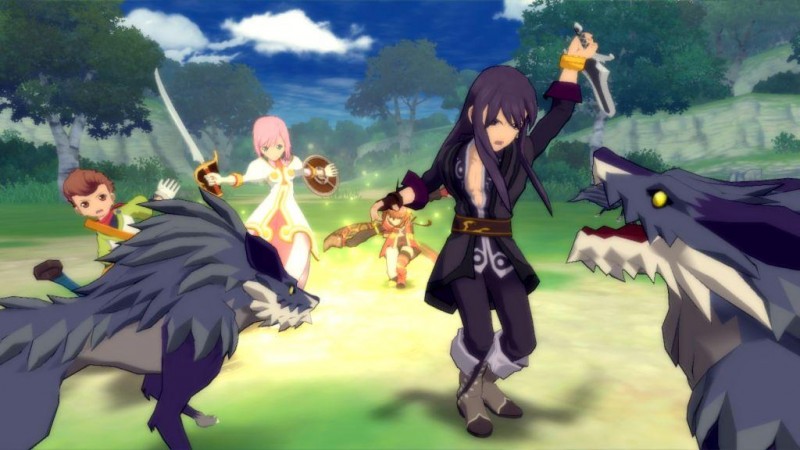
Tales of Vesperia (360) -- GI's Review
I’ve never actually been able to fully appreciate Namco’s long-running Tales series for myself, but even for a skeptic like me, Tales of Vesperia is easily the best in the series. A great sense of humor, myriad touching character moments, and a perfect evolution of Tales’ action-packed combat are all nice bonuses, but the real star of the show is Repede. Repede is the canine companion of the main character. More importantly, he’s a dog that smokes a pipe. Doesn’t get more awesome than that, folks.
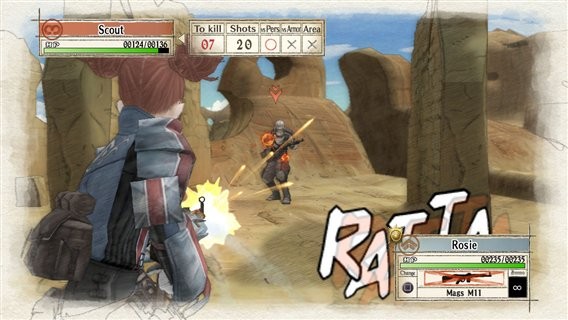
Valkyria Chronicles (PS3) -- GI's Review -- and Valkyria Chronicles 2 (PSP) -- GI's Review
Sega may not be bringing over the third entry in this series of gorgeous tactical RPGs, but that shouldn’t stop you from checking out the two that have already made their way to North America. This alternate universe war story heavily inspired by World War II contains one of the freshest takes on the turn-based wargame RPG ever seen. The PSP sequel shrinks the battlefield but improves on the character customization surrounding it.
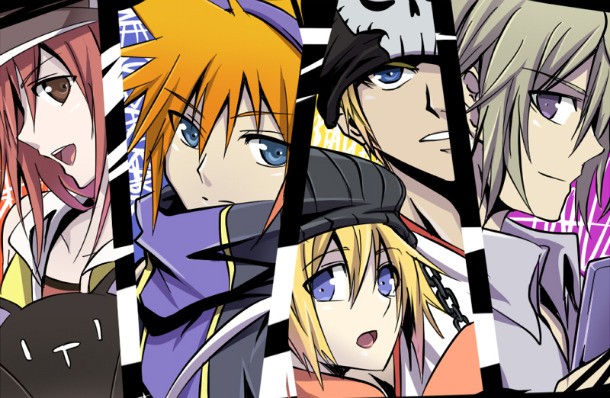
The World Ends With You (DS)
My fondness for the Shin Megami Tensei series should already reveal that I’m interested in RPGs with unique settings. The World Ends With You chooses the popular Shibuya shopping district in Tokyo. It embraces the strange Tetsuya Nomura style that all recent Final Fantasy games have, but by making fashion sense part of the actual gameplay, it feels much more natural and less laughable. The off-the-wall battle system is unlike any other RPG I’ve ever played.
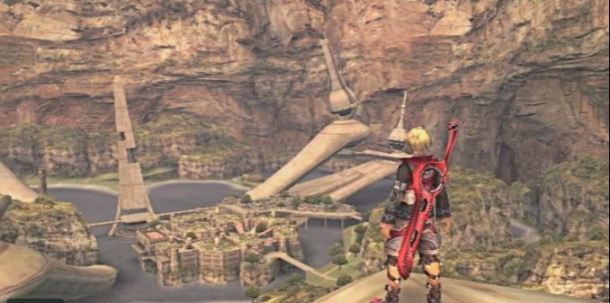
Xenoblade Chronicles (Wii)
Monolith Soft has never really blown me away – I enjoyed the Xenosaga games but never fully adored them the way some gamers have – but Xenoblade Chronicles feels like this team stepping up to the plate and claiming the JRPG throne. The lush, bizarre setting is full of wonders, while the MMO-inspired combat is aided by the main character’s ability to see the future. With its forward-thinking, ease-of-use features, Xenoblade may just be the best JRPG I’ve played this generation. Stay tuned for my review in just a few weeks to see what I think.

